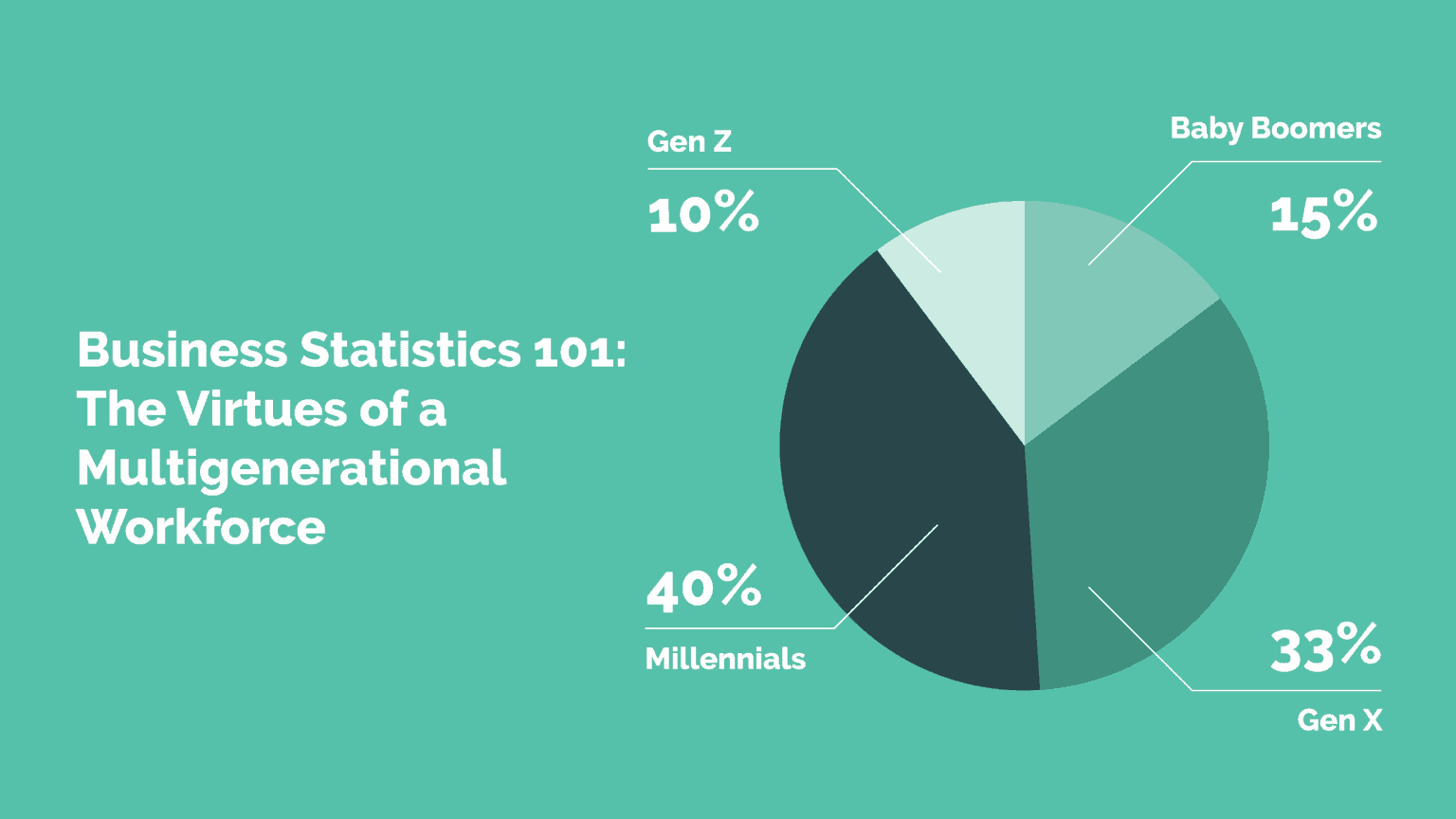
In today’s generation, the workforce is more diverse than ever before, because nowadays we are witnessing almost four different generations who are currently employed. This situation can create many challenges for the managers to find certain kinds of ways to connect with different generations of employees with their unique set of values, priorities, and preferred working styles.
The key to managing a multigenerational workforce as a manager is to understand the perspective and unique needs of different generations of workers and according to that you can make certain impactful training design & delivery strategies, which will help you to deal with a diverse workforce.
So, if you’re a manager who’s looking to handle a diverse people workforce effectively then this blog will definitely help you to create some effective strategies to manage a multi-generational workforce and raise the level of productivity to achieve business goals successfully.
So, without any further delay, let’s get started!
Understanding the Multigenerational Workforce
The multi-generational workforce term itself is self-explanatory which means it involves people from different backgrounds, age groups, and experiences. It involves generations like Gen Z, Baby Boomers, Millennials, and Gen X.

Each and every generation has something unique to offer and they have different characteristics and preferences. For Example- Baby Boomers are known for their work ethic and loyalty, while Millennials value work-life balance and flexibility.
Managing a multigenerational workforce is not everyone’s cup of tea, to become successful in it, you just need to have a proper understanding of their need, personality, and preferences to create a positive and productive workforce environment.
According to multi-generational employee needs managers must create certain Impactful Training Design & Delivery strategies to cater to their needs which will ultimately benefit towards the overall growth of the organization.
Importance of Impactful Training Design and Delivery
Training is essential for any organization, and it is even more critical when managing a multigenerational workforce. Managers need to design and deliver impactful training that caters to the needs of every employee. This can be achieved by using a variety of training methods, including e-learning, instructor-led training, and on-the-job training.
Impactful Training Design & Delivery methods should be applied to cater to every generation's needs. For Example- Millennials may prefer e-learning while on the other hand, Baby Boomers may prefer traditional classroom training, it depends on the need which you need to find out first.
Now let us get to know some effective training delivery strategies to your multi-generational workforce employees:
1. Build Inclusive Culture
Nowadays building an inclusive culture is very necessary because every organization has people from different age brackets, backgrounds, and different preferences. It’s become one of the important responsibilities of every manager to create an inclusive and diversified environment where every employee should feel an important part of the organization and valued.
Managers should encourage every employee to work with each other and together on projects and other new initiatives. Managers can create cross-functional teams, which should include employees from different generations. Every organization should promote the idea of a multicultural community which can become possible if time by time managers could give employees to socialize and get to know each other.
2. Build a Flexible and Adaptable Environment
As a manager, while you’re trying to manage a multigenerational workforce, you must focus on building a flexible and adaptable environment. Managers need to be open to different work styles and be able to adapt to the changing needs of their employees. This can be achieved by providing flexible work options and accommodating different work schedules.
Management should also put focus on what is the need of their employees and according to that, they must adapt their management style as well. This will help to increase the level of productivity of every employee, which will ultimately benefit the organization.
3. Have Clear Communication and Collaboration
While managing a multigenerational workforce having clear and effective communication with each other and with that collaboration also is very essential. Managers should make sure that during communication everyone is on the same page and understand what has been conveyed. There are multiple ways to achieve this like- face-to-face meetings, video conferencing, etc.
The idea of collaboration should also be a focus of every manager. They can create cross-functional groups with different generations of people to complete a project or any new initiatives together.
4. Every Worker's Opinion Matters
There’s no better way to create a positive work culture than by giving the opportunity to employees to express their ideas and feedback. Employees will feel valued and appreciated when their input has listened attentively and their feedback has been taken seriously.
By allowing employees to share their experiences, suggestions, and ideas with all members of the team, managers can cultivate a collaborative atmosphere where different generations can work together toward a common goal.
Providing a platform or forum where employees can openly communicate can bring a variety of perspectives, experiences, and skills to the table. This can help leaders better understand the needs and experiences of multiple generations in the workplace, and how to best serve them.
Establishing clear protocols for communication like behaviours for respect and inclusion can ensure everyone is given the opportunity to contribute, regardless of age. Additionally, offering feedback and appreciation to teams or individuals can help foster an atmosphere of trust and engagement.
5. Observe and Recognize Their Strengths
Recognizing and leveraging strengths is essential when managing a multigenerational workforce. Managers need to identify the unique strengths and skills of each employee and use them to the advantage of the team. This can be achieved by providing opportunities for employees to develop their skills and offering cross-training opportunities.
Managers should also provide feedback and recognition for a job well done. This can be done by acknowledging employees' contributions and providing opportunities for them to take on new challenges and responsibilities. By recognizing and leveraging strengths, managers can build a more productive and engaged team.
Managing a multigenerational workforce effectively
Managing a multigenerational workforce requires a deep understanding of the different generations and their unique characteristics, values, and communication styles. Biases and stereotypes can create tensions and conflicts, but these can be overcome through Impactful Training Design & Delivery.
By fostering a culture of respect, inclusivity, and open communication, organizations can leverage the strengths of each generation to create a productive and innovative workforce. A growth mindset, willingness to adapt to change, and effective communication strategies are essential for the successful management of a multigenerational team.
Find the right course for you and try out the course. Call us at +91 9830029766. You can also mail us at act@asiancollegeofteachers.com
Written By : Park Jin Ae
Centre For Training & Professional Development (CTPD) - The Trading brand of TTA Training Private Limited, India is a ISO 9001:2015 Company




© 2021 - Centre For Training & Professional Development (CTPD). All Rights Reserved. Centre For Training & Professional Development (CTPD) trading brand of TTA Training Pvt. Ltd (India) - CIN U80902WB2016PTC215839, Asia Teachers Training Co., Ltd (Thailand) - Registration No. 0105558193360 & Asian College Of Teachers Ltd (UK) - Company Number 9939942 & Asian College Of Teachers LLC, (USA) - Federal Tax Identification Number 30-1261596
Designed by kreativewebtech